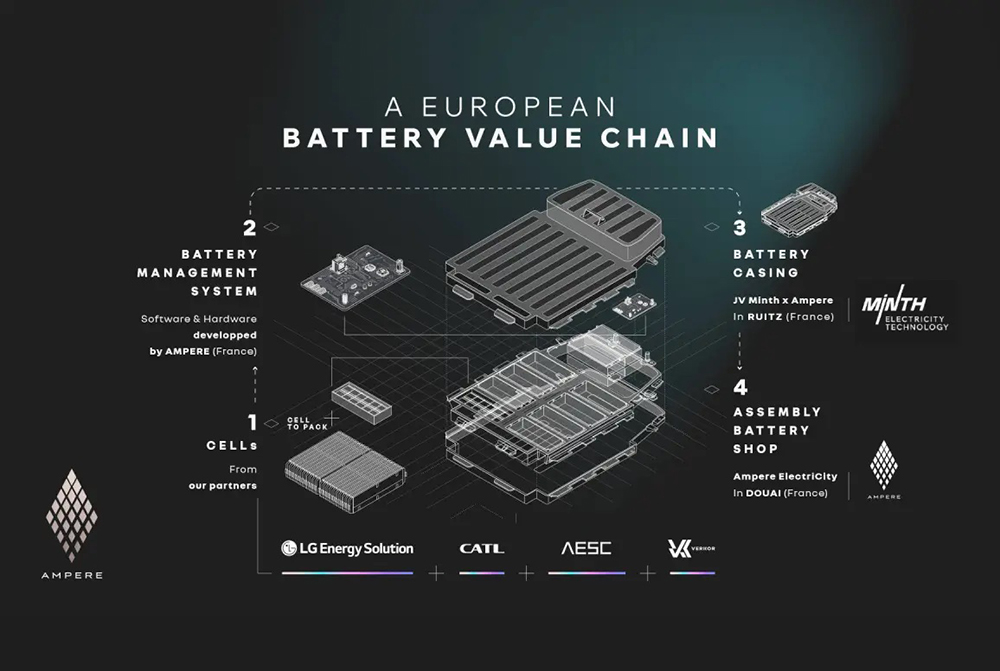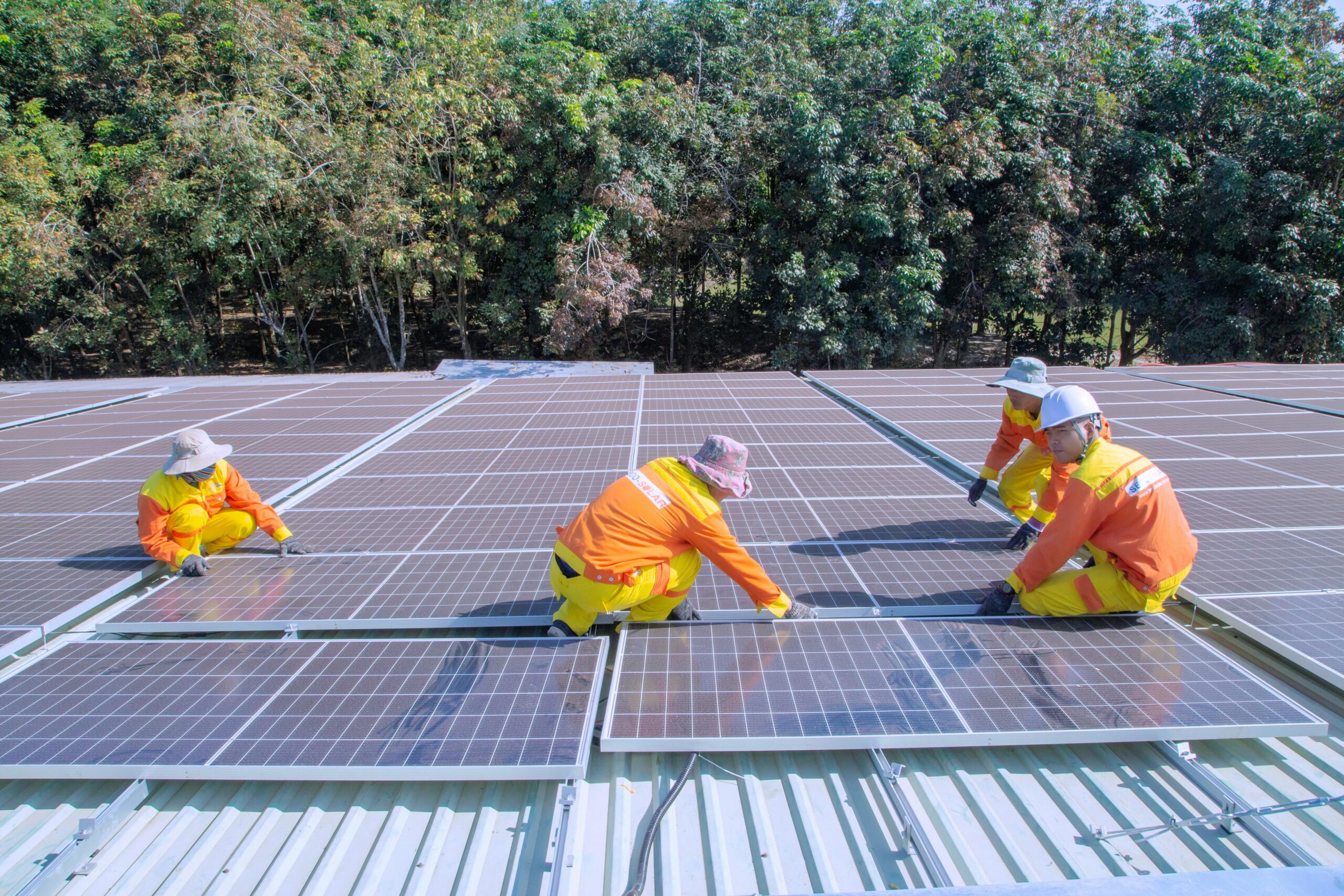French EV and software company Ampere has announced its plan to integrate FP lithium-iron-phosphate (LFP) battery technology with Renault’s nickel-cobalt-manganese (NCM) technology.
Ampere is collaborating with LG Energy Solution and CATL, which will provide LFP batteries for several models of Renault and Alpine brands and cover the company’s LFP battery needs until 2030.
Ampere expects to establish an integrated value chain in Europe that will make LFP technology price-competitive for its European-made vehicles. The first Renault models to be equipped with LFP batteries are expected to be available by early 2026.
LFP, which is less energy-intensive than NCM, is suited for use in small and midsize cars, and because it is cheaper, can make EVs more affordable.
Ampere is also working with LG Energy Solution to develop cell-to-pack technology that removes the battery modules and integrates the cell directly into the case, thereby integrating more cells into a given space and resulting in an approximate 20% reduction in battery cost by 2026, as well as an increase in vehicle range.
“Our battery strategy is proof of the efficiency of Ampere’s open and horizontal approach with best-in-class partners,” said Josep Maria Recasens, COO of Ampere. “This plan is in line with Ampere’s road map to reduce costs by 40% before the next generation of vehicles.”
Source: Ampere



